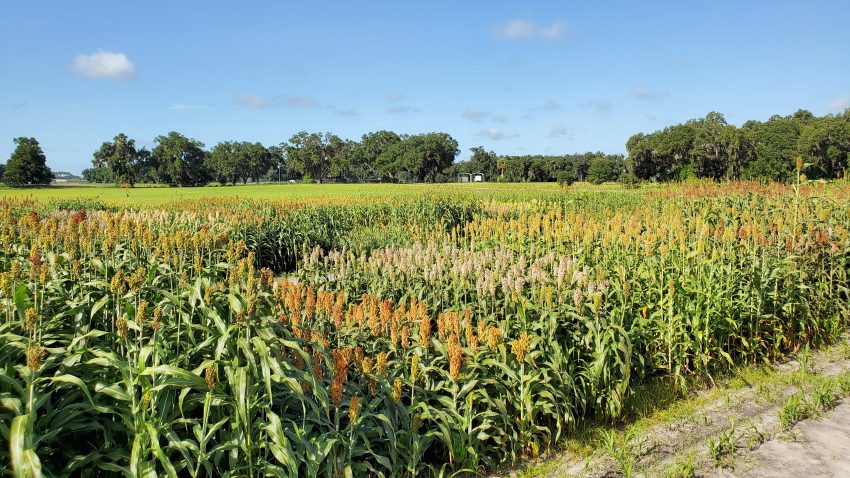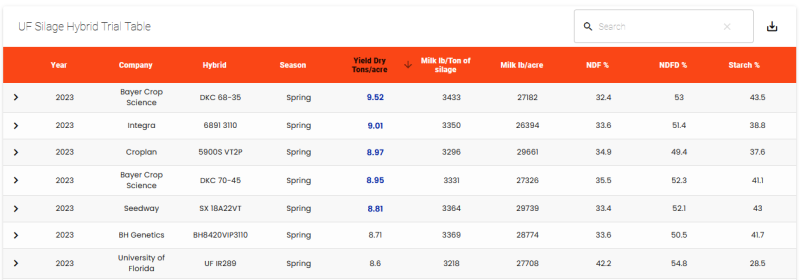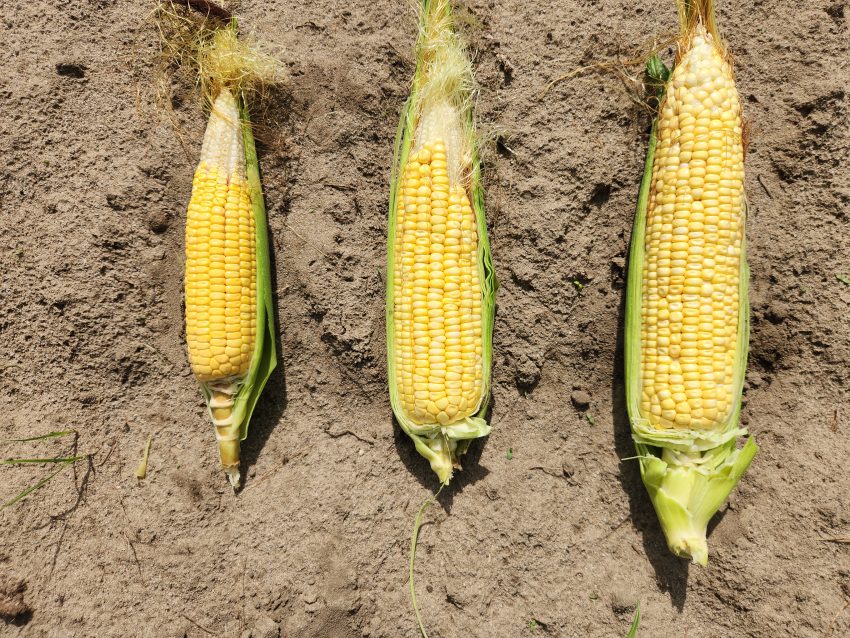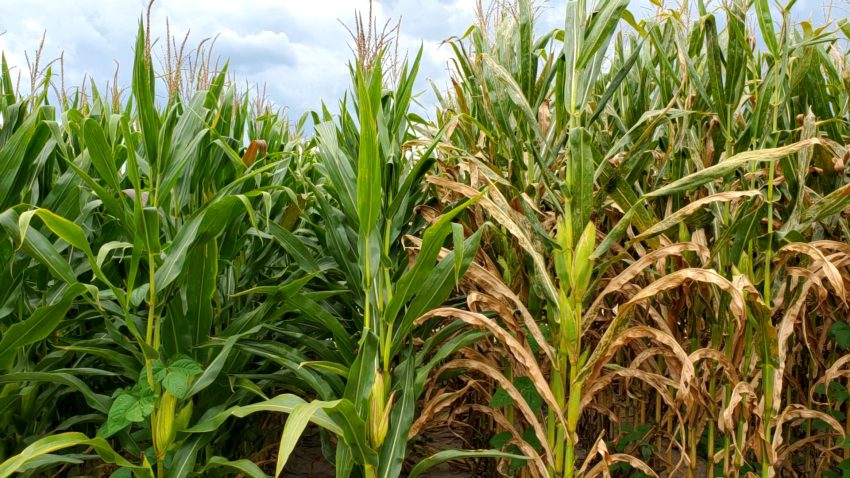Marcelo Wallau, Diwakar Vyas and Maria Elena Mailhos, UF/IFAS Agronomy Department
Are you planning on planting summer annuals for silage, hay/haylage, or grazing? Utilize the data from our corn and sorghum hybrid variety trials to aid in variety selections.
Since 2008, the UF/IFAS Forage Team has conducted the Silage Corn and Sorghum Variety Trials, in collaboration with the University of Georgia-Tifton, and multiple industry partners. Those trials provide data on the performance and nutritive value of corn and sorghum varieties to help farmers and industry decide which hybrids to plant. Over the years, we have improved and expanded our trial, partnering with over 50 companies and testing more than 600 hybrids.

Figure 1: Sorghum hybrid trial at the UF/IFAS Plant Science Research and Education Unit in Citra, FL. Credit: Marcelo Wallau, UF/IFAS
–
The trials are conducted at the UF/IFAS Plant Science Research and Education Unit, in Citra, FL. They are open to any company to enter and test their hybrids, and the data is provided directly to the producers and Extension Agents. We have two planting seasons, spring and summer, to evaluate corn, forage sorghum, sorghum-sudangrass, and millet varieites for biomass production, quality (nutritive value), and disease tolerance. For sorghum-sudangrass and millet, we are now conducting multi-cut trials where plots are harvested 3 times during the growing season. For corn and forage sorghum, we harvest once at 35 % dry matter (target for silage production). In 2023, we had 44 corn hybrids and 65 sorghums and millets being tested, representing 21 companies. The results for the 2023 trials are now available on our online tool and on our website, where the spreadsheets are available for download. Note: our multi-cut trials are not available yet on the online tool but can be downloaded from the website.

Example from the UF Silage Hybrid Decision Tool showing the the top 5 corn varieties based on dry matter yield. You can sort the data based on the trait of most importance to your operation. This image is linked to the actual online tool that is much easier to read.
–
Why does variety selection matter?
Variety selection is the first management tool a producer has in a cropping system. It defines adaptation to the region and management practices and will set the productivity potential (Figure 2), tolerance to pests and diseases (Figure 3), and nutritive value. Results from our trials show that by selecting the top-performing hybrids for corn or sorghum for silage, it is possible to achieve 30% more production (in terms of estimated milk production per acre) compared to the average, with the same level of inputs. When planning for this next planting season, explore which hybrid and companies are in the market in your region, and what fits your production system (e.g. planting season, crop rotation, input level) and goals. Remember to check specific traits such as herbicide resistance, tolerance to specific pests and diseases, relative maturity, and other traits that are described in the product factsheets. To facilitate variety selection check our “Silage Hybrid Decision Tool”, where you can find detailed information on hybrids tested since 2008. More information on how to use our tool can be found in this article.

Figure 2: Differences in ear size and fill between corn hybrids under the same management practices. Credit: Marcelo Wallau, UF/IFAS
–

Figure 3: Differences in disease resistance between corn hybrids under the same fungicide management. Credit: Marcelo Wallau, UF/IFAS
–
May 30, 2024 – Save the Date
Are you interested in corn and sorghum production, for silage, grazing, or hay? Mark your calendars for May 30th, and join us at UF/IFAS Plant Science unit for the 2024 Corn Silage and Forage Field Day. This field day rotates between the University of Georgia-Tifton and UF/IFAS-Citra, to bring producers and industry together to discuss the new and hot topics on silage production and tour the variety trials. The field day also features excellent speakers on topics ranging from crop management, to silage making and feeding, and offers CEUs for pesticide applicator licenses and crop consultants. It is also a great time for interacting with the main companies in the market and choosing your hybrids and products for the next planting season. Keep an eye on our social media and newsletter for information on registration and agenda.
More information on corn and sorghum silage production can be found on a series of Extension documents, through our portal called, “Ask IFAS“. If you have any concerns or suggestions, please email the Forage Team at forages@ifas.ufl.edu, or contact your local extension agent. For companies interested in our trials, please reach out to us via forages@ifas.ufl.edu.
- UF/IFAS 2025 Top Rancher Challenge Showcases Youth and Adult Talent - July 11, 2025
- Cow Talks: Special Guests Discuss the Impact of H5N1 Avian Influenza on Agriculture - April 25, 2025
- Why is this weed here? Weed Management in Pasture Systems - February 28, 2025
